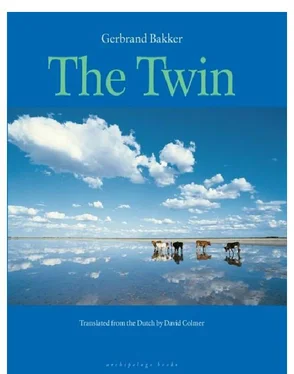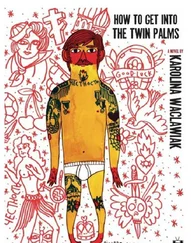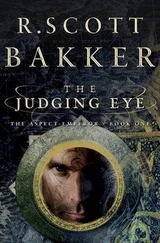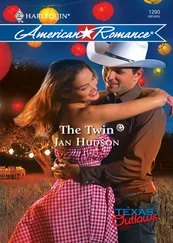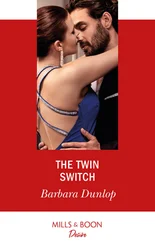“I might have liked it.”
“Living alone?”
“Yeah. In a tidy little house.”
“Isn’t it to your liking here?”
He doesn’t answer but sighs and scrapes his spoon over his plate. Then he takes a third helping.
I’m drunk from the wine and think of beer. Beer straight from the bottle, sitting in an easy chair in a house that only exists inside my head. Jazz. There’s something lonely about jazz, especially when it’s quiet and coming from a radio somewhere in a corner.
Why did I let it all happen like this? I could have said “no” to Father and “do it yourself” or just “sell up.”
Grandfather van Wonderen lived in Edam, he survived Grandmother van Wonderen six years. I visited him once a week for half an hour. He lived in an old people’s home in a small room with a view of a pond that had a fountain in the middle. No matter where the sun was, it always seemed to shine in through his windows. Grandfather would pour me a coffee and I could never think of anything to say. I was glad when the half-hour was over. In the car on the way home I always thought, wouldn’t it be kinder if I didn’t come at all, because then he wouldn’t know any better. That half-hour of mine made him a lot lonelier than no half-hour. If you don’t know any better, you haven’t got anything to miss. It’s as if I already know that Henk is going to leave again. Of course he’s going to leave, why should he stay? There’s nothing for him here.
“More wine?”
I cover my glass with a hand.
“Do you ever go out?”
“Out?”
“Yeah, out. To a pub or. . My father used to play cards, once a week.”
“No,” I say.
“I’d like to go out sometimes.”
“You should go to Monnickendam on a Saturday night.”
“Is that fun?”
“It used to be.”
“A village like that must be really boring.”
“You could always go to Amsterdam.”
“I don’t know. .”
I stand up and clear the table. Henk disappears into the living room and turns on the TV.
After doing the dishes, I sit down at the bureau to do some paperwork, but my eyes keep wandering from the documents; I still feel light-headed. After a while he turns the TV off again. He walks into the hall and goes into the scullery, and a little later I hear the water running in the bathroom. I try to concentrate on the work in front of me, but actually I’m waiting to hear him go upstairs.
He doesn’t go upstairs. He comes into the kitchen, a towel wrapped around his waist. He holds the door with his left hand. “I’m glad my father is dead,” he says.
“What?”
“I’m glad he’s dead. My mother didn’t even ask me if I wanted to carry on with the pigs, she just sold up.”
“Would you have wanted to take it over?”
“No! Horrible. Selling up was fine by me.”
“But you were annoyed she didn’t ask you?”
“Not really. Maybe my sisters told her to sell. I don’t know. They always shut me out.”
“So you’re glad?”
“Sure.” He doesn’t sound glad.
“What kind of man was your father?”
He thinks for a moment and raises one shoulder. “He was actually a very nice guy. We got on well together.” He’s still holding the door and has kept his eyes on the table the whole time, bare now except for the almost empty bottle of wine. Now he looks at me. “Goodnight,” he says.
When I hear the door of the new room closing, I stand up and pour half a glass of wine. I see myself reflected in the side window and raise the glass — to myself or to Ada, I don’t know which. Suddenly I realize that Father hasn’t had any dinner yet and immediately I loathe that fellow in the window, who has raised his glass so preciously. Acting cool when he’s anything but. I creep upstairs and cautiously open the door to Father’s bedroom. He’s snoring quietly and calmly. Peacefully. I let him sleep, it’s already late. I go back to the kitchen and draw the curtain across the side window. Just when I’m about to sit down again at the bureau, Henk reappears at the door. Not with a towel around his waist, but wearing blue underpants and a yellow T-shirt.
“Your father hasn’t eaten,” he whispers.
“I know,” I say. “He’s asleep.”
“But. .”
“He’ll survive.”
He nods and disappears.
The electric clock buzzes, the tap drips. It’s quiet in the house. I swallow something in the back of my throat and close the bureau.

“Ballerup,” I say a little later. “Stenløse, Taastrup, Frederikssund, Holbæk.” I run a finger over the top of the frame and blow the roll of dust off my fingertip. For the first time I see that Jutland could be a giant who is about to gobble up Funen, Zealand and all the smaller islands. I turn away, undress and slip into bed. Gradually my body starts to warm up the duvet. Upstairs something creaks, from outside there isn’t any sound.
We roll the plastic-coated mesh out in the opposite direction, from what’s left of the laborer’s cottage towards the farmhouse, from post to post. Again it’s a couple of degrees warmer than yesterday and now that I look I see more crocuses in the verge. The flower Teun trampled was less lonely than I thought. I keep looking up at the sky, expecting redshanks and black-tailed godwits, despite knowing full well that it’s not even March yet. The concrete posts are designed for wooden rails, which you are supposed to attach with a nut. We twist wire around the bolts in the posts to hold the mesh. Henk is enjoying the work, I think. He whistles while rolling out the mesh, twists the wire together and smokes the occasional cigarette. He raises an index finger for cyclists and says “Hiya” — sniffing when the cyclists don’t say anything in reply. Sometimes, while smoking, he stares at the high buildings and haze of Amsterdam. It’s as if he was born here. All Waterland smells like manure.

“Do you ever get any other cheese?” he asks at lunch.
“No.”
“Why not?”
“It’s Edam from the dairy.”
“So?”
“I get it cheap.”
“It’s pretty bland.”
“You can always buy yourself some other cheese.”
He lays down the cheese slice. “I don’t have any money.”
I stand up and walk over to the bureau. The wallet is in one of the square drawers. I flick it open and pull out two hundred-euro notes. “Here,” I say.
He takes the money without a word, folds the notes in half and sticks them in his back pocket. He picks up the cheese slice and cuts some more slices.
The livestock dealer’s truck goes past slowly.
“We’ve got a visitor,” I say.
“You’ve got a visitor,” Henk says. “Not me.”
The livestock dealer knocks once on the jamb and appears in the doorway. “Afternoon,” he says.
Now that I look at him properly, seeing him partly through Henk’s eyes, even though he is sitting with his back to the door, I notice how old the livestock dealer is. He has a gray beard, the kind of beard you see in very old, severe photographs. The deep furrows in his forehead are dark along the edges. As usual he rubs the sole of one foot over the top of the other. He looks at Henk’s back.
“This is Henk,” I say.
“Nephew of yours?” he asks.
“A nephew? No, Henk works here.”
“Oh.”
Henk acts as if there’s no one else in the kitchen. He hasn’t turned around and keeps on eating. I’ve half turned my chair away from the table.
“Sit down,” I say, pointing at the chair opposite me.
Читать дальше
